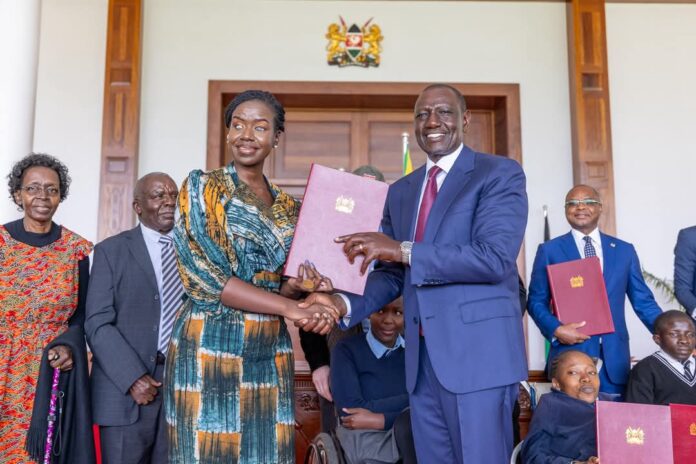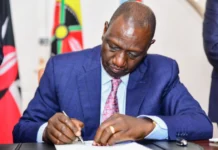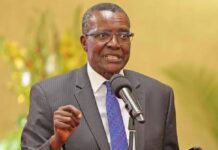By Kelly Were
In a historic move to advance the rights and dignity of persons with disabilities (PWDs), President William Ruto has officially signed into law the Persons with Disabilities Bill, 2025, replacing the outdated Cap. 133 and ushering in a modern, rights-based framework aimed at inclusion, accessibility, and equality.
The signing ceremony, held at State House Nairobi on Thursday, marks a critical milestone in Kenya’s legislative journey toward social justice and equity. The Bill—sponsored by Senator Crystal Asige—guarantees PWDs equal rights in education, healthcare, employment, political participation, and access to infrastructure.
President Ruto described the legislation as “a progressive piece of law” that enshrines the protections outlined under Article 54 of the Constitution, and vowed that implementation would be rigorous and transparent. “The real work now begins,” he said. “Its full promise cannot be realised by the National Council or the Ministry of Labour and Social Protection alone. It requires collective action by all stakeholders.”
Key Features of the Law
The Persons with Disabilities Bill, 2025 takes a holistic approach to disability rights by:
- Prohibiting Discrimination: It criminalizes all forms of discrimination against persons with disabilities across all sectors.
- Enforcing Accessibility: Adjustment orders will compel both public and private entities to modify their facilities and services to accommodate PWDs.
- Providing Incentives: Employers of persons with disabilities can claim a 25% deduction on salaries and a 50% deduction on workplace modification costs.
- Tax Exemptions: Assistive devices will now be exempt from taxes and levies, significantly reducing the cost of accessibility tools.
- Mandatory Inclusion in Employment: County governments must allocate at least 5% of all jobs to persons with disabilities.
- Inclusive Education: Institutions must provide tailored accommodations and ensure equal access to learning for students with disabilities.
- Healthcare Access: Guarantees free medical rehabilitation services and safeguards for PWDs in healthcare delivery.
- Market Access: Reserves 5% of market stalls nationally for persons with disabilities.
The Bill also establishes a revitalized National Council for Persons with Disabilities, now an empowered statutory body tasked with overseeing enforcement, issuing adjustment orders, and advising government on disability-related matters.
Broader Legislative Milestones
In addition to the Disabilities Bill, President Ruto also signed the County Governments Additional Allocation Bill, 2025, enhancing financial support to county governments. The funding aims to promote equitable resource distribution and improved service delivery across devolved units.
Senator Asige, who tabled the original Bill in February 2023, welcomed the assent, calling it “a victory for human rights and a triumph for all who have long been left on the margins.”
Closed captioning, universal design standards, and the reinstatement of the Disability Mainstreaming Performance Indicator in public service performance contracts are among the immediate implementation measures announced.
As President Ruto emphasized, “This legislation is not the finish line but the starting point of a transformative journey.”



















